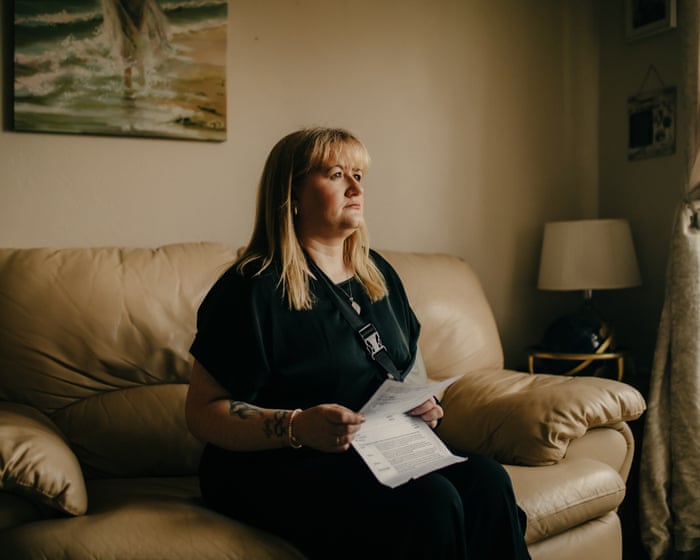I’m 48 years old, which means I grew up without computers. I didn’t use the internet until my early twenties, but once I did, I was hooked—using it to stay connected with friends. Over the years, the internet evolved, but I always kept up with the latest social media to share my life. Then, in 2021, I became seriously ill. Doctors discovered genetic abnormalities, and I underwent a preventive double mastectomy and had my ovaries removed. The stress took a toll on my long-term relationship, which eventually ended. Still, I tried to stay positive and shared my journey online to connect with others going through similar struggles.
By November 2022, I had built a large following. One day, a man named Andrew messaged me on Facebook, claiming to be an army medic stationed in Afghanistan. He said my story had moved him—his wife had recently passed away. We talked for weeks, and I began to feel close to him. Then, he messaged saying his internet was about to be cut off and asked me to send him gift cards loaded with money.
That’s when I became suspicious and cut contact. After posting about what happened, I learned this was a common romance scam called “trauma bonding,” where scammers exploit emotional pain to manipulate victims. People started reaching out, sharing their own stories. I was shocked and heartbroken for them. While working full-time as an NHS healthcare worker, I spent my free time tracking down scammers and warning others on my TikTok account, @staysafewithmjules.
One woman had sent thousands of pounds to a man posing as a soldier. When I investigated, I discovered the scammer had stolen the identity of a real U.S. soldier who had died in a car crash. She was devastated—and she wasn’t alone.
As my following grew past 10,000, scammers began targeting me directly. I started playing along, letting them reveal their bank details before reporting them to authorities. Despite dealing with scams daily, I never thought I’d fall for one—until I did.
Last year, I received what looked like an official letter from HMRC about a tax rebate. It claimed extra security measures required me to send copies of my passport and driver’s license. The letter looked legitimate, so I sent the documents. Days later, I called HMRC and was horrified to learn someone had already claimed the £2,000 rebate in my name.
Investigations revealed a fake bakery had been opened under my name—likely for money laundering. The police helped shut it down, but my details were already for sale on the dark web. Dozens of loan applications had been made in my name, wrecking my credit score. Then, I received a solicitor’s letter: I was being sued for non-payment of a £16,000 loan I never took out.
I felt physically sick. The legal battle drained me, but I refused to give up. Now, I’m more determined than ever to expose these scams and protect others from the same pain.This tent was funded by external sources. For details, please see our Privacy Policy. We use Google reCaptcha for website security, and Google’s Privacy Policy and Terms of Service apply.
Luckily, my loan was canceled after I proved I’d been scammed. The police told me to change as much as possible—email addresses, phone numbers, even my name and address.
I hesitated about sharing my story, afraid people might blame me or claim they’d never fall for such a scam. But it can happen to anyone. I’m glad I spoke up—it might help others avoid the same fate. Even though it makes me a target, I’ll keep using my social media to expose scammers. My experience shows how crucial this is.
As told to Heather Main.
Have a story to share? Email experience@theguardian.com.



